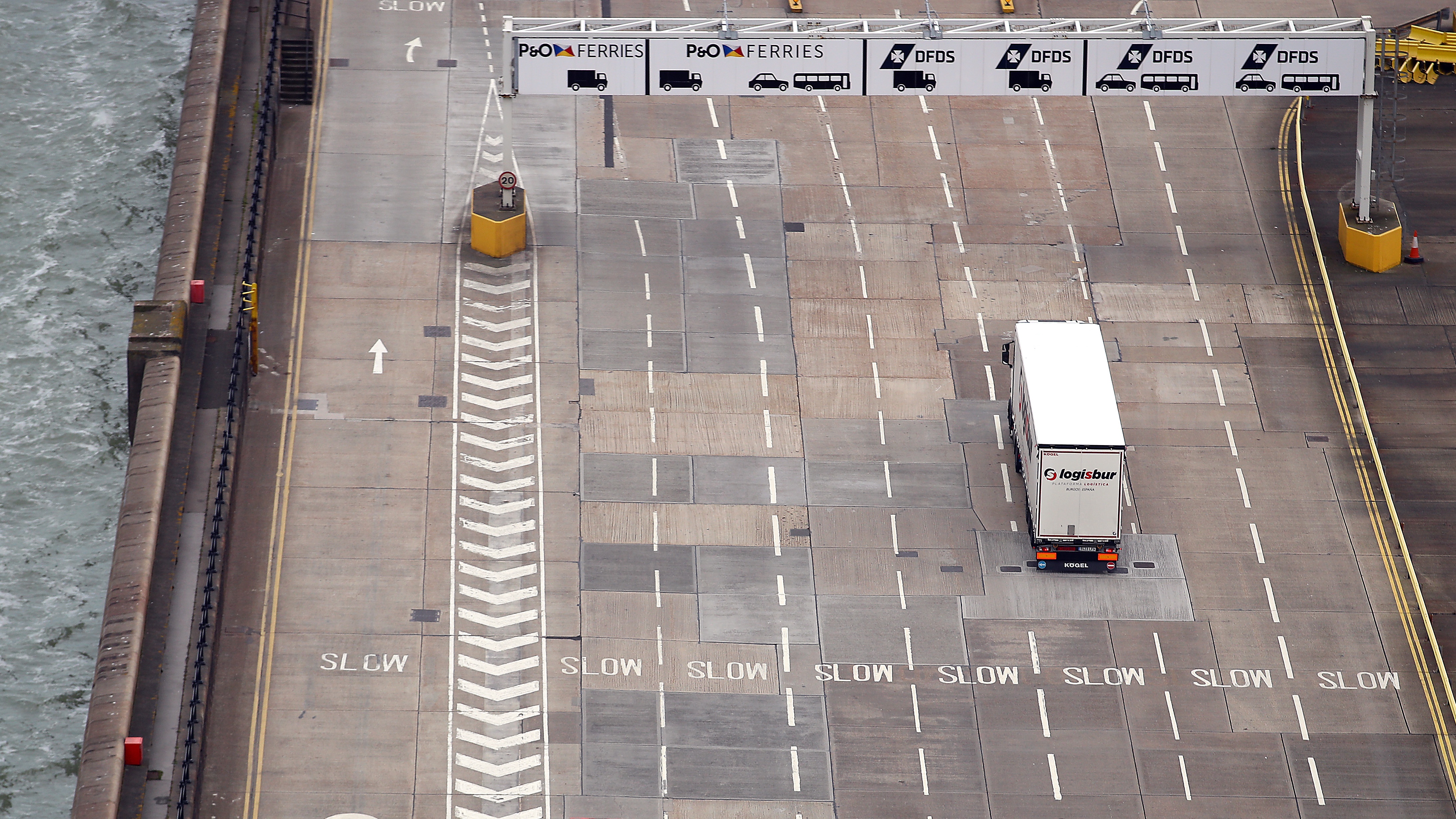Businesses facing £13bn bill for post-Brexit border checks
Officials outline new customs regime as Michael Gove defends £705m plan for border posts and staff

A free daily email with the biggest news stories of the day – and the best features from TheWeek.com
You are now subscribed
Your newsletter sign-up was successful
Businesses trading between the UK and the EU will have to pay additional costs of up to £13bn next year as a result of post-Brexit border checks.
Government officials have confirmed that companies will have to fill in approximately 400 extra customs declarations a year after additional checks come into effect in January 2021. “In total, an estimated 215 million will have to be completed by businesses trading with the EU, with an equivalent number filled in by companies in Europe,” The Times reports.
And HMRC has estimated that each form will cost an average of £32.50 to complete - with that total climbing as high as £56 for imports and £46 for exports in some instances.
The Week
Escape your echo chamber. Get the facts behind the news, plus analysis from multiple perspectives.

Sign up for The Week's Free Newsletters
From our morning news briefing to a weekly Good News Newsletter, get the best of The Week delivered directly to your inbox.
From our morning news briefing to a weekly Good News Newsletter, get the best of The Week delivered directly to your inbox.
Cabinet Office Minister Michael Gove told MPs yesterday that the “publication of the border operating model is an important step, which gives business the certainty and direction they need to prepare for the end of the transition period”.
Gove insisted the government had been “laying the groundwork for months”, with a planned £705m funding package to help manage Britain’s borders.
But his Labour counterpart, Rachel Reeves, said the plans were “too little, too late”.
The new funding includes “up to £470m to build port and inland infrastructure, and £235m will be allocated for IT systems and staffing”, the BBC reports.
A free daily email with the biggest news stories of the day – and the best features from TheWeek.com
The IT cash includes £100m to develop HM Revenue and Customs systems, £20m for new equipment, £15m towards building infrastructure to improve border flow and management, and £10m to recruit around 500 additional Border Force staff.
Gove said the funding would help the UK “seize the opportunities” post-Brexit.
Howevever, Reeve is not alone in voicing “concerns about the UK’s preparedness for the impact of the new rules, and questions as to why such projects were not launched earlier”, Euronews reports.
Such concerns have also been raised at cabinet level. A leaked letter sent by International Trade Secretary Liz Truss to Gove and Chancellor of the Exchequer Rishi Sunak last week revealed her concerns that the government’s border plan could lead to smuggling, lawsuits and damage to Britain’s reputation.
Joe Evans is the world news editor at TheWeek.co.uk. He joined the team in 2019 and held roles including deputy news editor and acting news editor before moving into his current position in early 2021. He is a regular panellist on The Week Unwrapped podcast, discussing politics and foreign affairs.
Before joining The Week, he worked as a freelance journalist covering the UK and Ireland for German newspapers and magazines. A series of features on Brexit and the Irish border got him nominated for the Hostwriter Prize in 2019. Prior to settling down in London, he lived and worked in Cambodia, where he ran communications for a non-governmental organisation and worked as a journalist covering Southeast Asia. He has a master’s degree in journalism from City, University of London, and before that studied English Literature at the University of Manchester.
-
 Corruption: The spy sheikh and the president
Corruption: The spy sheikh and the presidentFeature Trump is at the center of another scandal
-
 Putin’s shadow war
Putin’s shadow warFeature The Kremlin is waging a campaign of sabotage and subversion against Ukraine’s allies in the West
-
 Media: Why did Bezos gut ‘The Washington Post’?
Media: Why did Bezos gut ‘The Washington Post’?Feature Possibilities include to curry favor with Trump or to try to end financial losses
-
 How corrupt is the UK?
How corrupt is the UK?The Explainer Decline in standards ‘risks becoming a defining feature of our political culture’ as Britain falls to lowest ever score on global index
-
 The high street: Britain’s next political battleground?
The high street: Britain’s next political battleground?In the Spotlight Mass closure of shops and influx of organised crime are fuelling voter anger, and offer an opening for Reform UK
-
 EU-Mercosur mega trade deal: 25 years in the making
EU-Mercosur mega trade deal: 25 years in the makingThe Explainer Despite opposition from France and Ireland among others, the ‘significant’ agreement with the South American bloc is set to finally go ahead
-
 Biggest political break-ups and make-ups of 2025
Biggest political break-ups and make-ups of 2025The Explainer From Trump and Musk to the UK and the EU, Christmas wouldn’t be Christmas without a round-up of the year’s relationship drama
-
 Who is paying for Europe’s €90bn Ukraine loan?
Who is paying for Europe’s €90bn Ukraine loan?Today’s Big Question Kyiv secures crucial funding but the EU ‘blinked’ at the chance to strike a bold blow against Russia
-
 ‘The menu’s other highlights smack of the surreal’
‘The menu’s other highlights smack of the surreal’Instant Opinion Opinion, comment and editorials of the day
-
 Moscow cheers Trump’s new ‘America First’ strategy
Moscow cheers Trump’s new ‘America First’ strategyspeed read The president’s national security strategy seeks ‘strategic stability’ with Russia
-
 Is a Reform-Tory pact becoming more likely?
Is a Reform-Tory pact becoming more likely?Today’s Big Question Nigel Farage’s party is ahead in the polls but still falls well short of a Commons majority, while Conservatives are still losing MPs to Reform